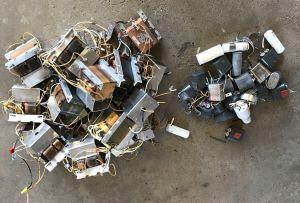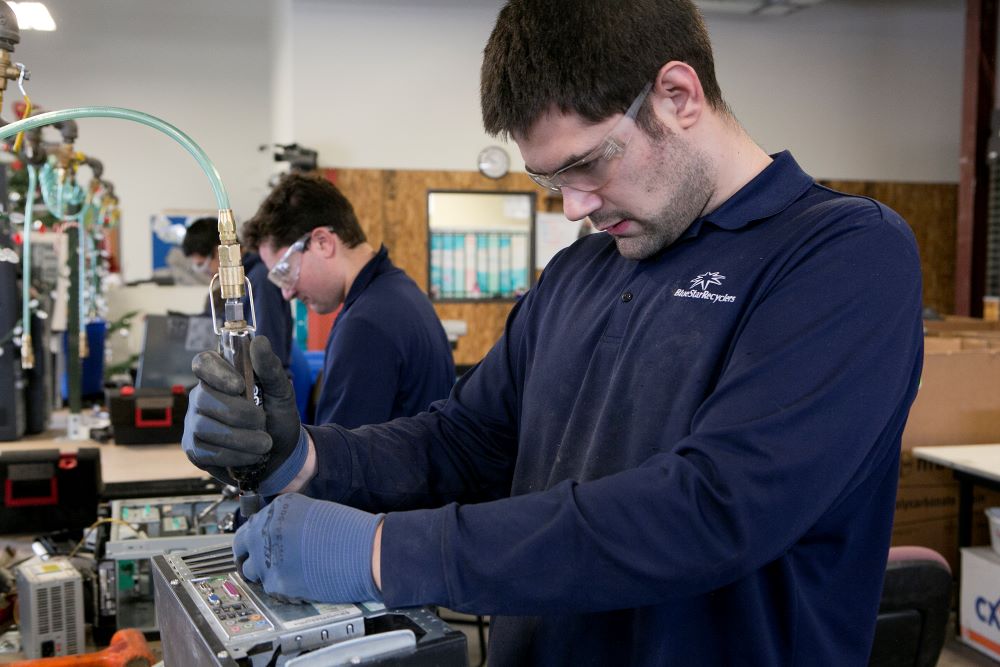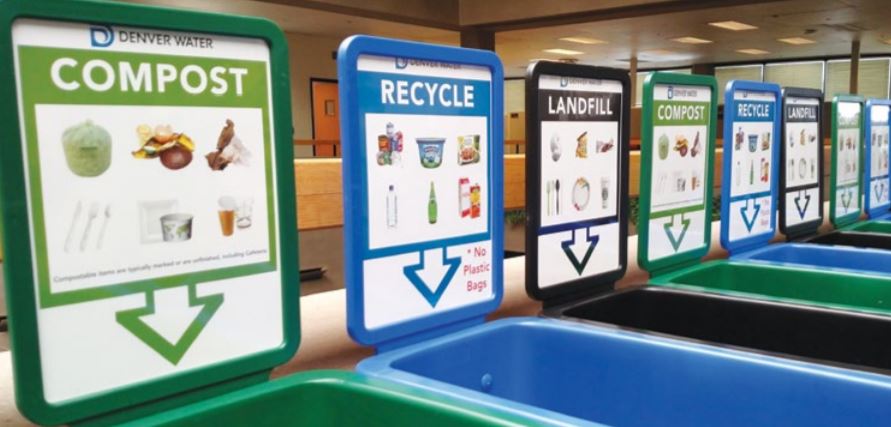Our operations are focused on closing loops and responsibly managing waste streams. Denver Water’s teams work tirelessly within our operations to safely recycle or dispose of operational waste with a priority to minimize the use of hazardous materials. Additionally, our compost, recycling and e-waste programs are successfully diverting waste from the landfill.
Goals that have been met
- Denver Water works to close loops and divert waste continuously, including providing shred bins for direct paper recycling, returning waste material to manufacturer for reuse when possible, and donating electronics before recycling.
- Road base material used to access Denver Water’s raw water collection system is reused by the U.S. Forest Service, reducing landfill waste.
- Compost and recycling bins are located throughout facilities, where hauling is available, reducing landfill waste.
Current initiatives
E-waste recycling
- In 2018, Denver Water partnered with Blue Star Recyclers to recycle 9 tons of electronic waste. We also host e-waste drop-off events so employees can responsibly dispose of old household electronics.
- When Denver Water conducted a major technology upgrade in 2018, switching out hundreds of desktop computers for laptops to improve mobility for our employees, we worked with Community Computer Connection to donate 595 old computers to school programs.
- Denver Water found a similar waste-reducing solution for devices called ERTs, which is short for encoder, receiver and transmitter. The organization has 250,000 of these devices in the field; they allow meter readers to collect data via drive-by readings. For years, these ERTs were treated as e-waste to be recycled through a vendor at the end of their battery life. Denver Water now sends these ERTs back to the manufacturer to recycle and reuse parts in new meters. So far, Denver Water has returned nearly 7,600 pounds of ERTs to Itron, the manufacturer.
- We’re also focused on reducing e-waste by extending the life of our equipment and using smaller devices. Using wired mice and wired keyboards, for instance, reduces the need for batteries for remote or wireless devices. Plus, the wired devices typically last longer so we don’t need to replace them as often, saving more money. Using laptops instead of desktops also reduces the volume of our electronics because they are smaller and lighter compared to desktop computers. Additionally, our Information Technology staff has been reusing and recycling individual computer components to increase the lifecycle of our equipment, which reduces the amount of our e-waste.
In pictures
Planning for our future
Materials management
Goals:
- Reduce municipal solid waste going to landfill 25% from 2020 baseline by 2025.*
- Reduce per-capita municipal solid waste (all streams) 25% from 2020 baseline by 2025.*
- Reduce per-capita electronic waste 25% from 2020 baseline by 2025.
- Develop and implement print standards to reduce paper use 50% from 2019 baseline by 2025.
*Data does not currently include remote location facilities where recycling and compost hauling are not available.
Commitment:
- Compost all landscaping.
- Optimize water treatment chemicals in volume and type.
- Identify beneficial reuse options for water treatment residual disposal.
Procurement
Standards:
- Uphold Denver Water idling policy with continued annual reporting and goals for reduction.
- Uphold Denver Water sustainability procurement standards regarding waste reduction, product and service improvement, and efficiencies within Denver Water operations.
Commitment:
- Continue to reduce shop and maintenance chemical use and work with the purchasing department to find more sustainable alternatives.
- Account for value of sustainabilities in scoring requests for proposals.




